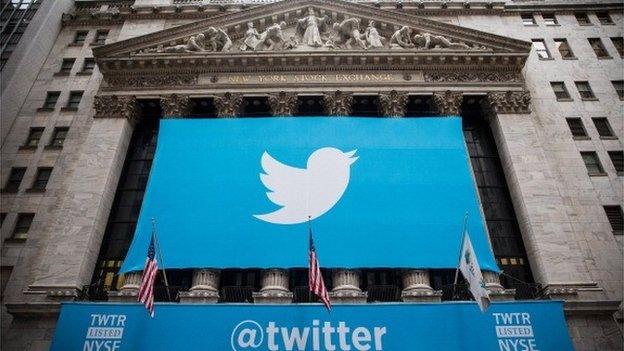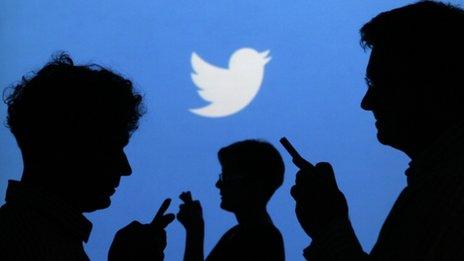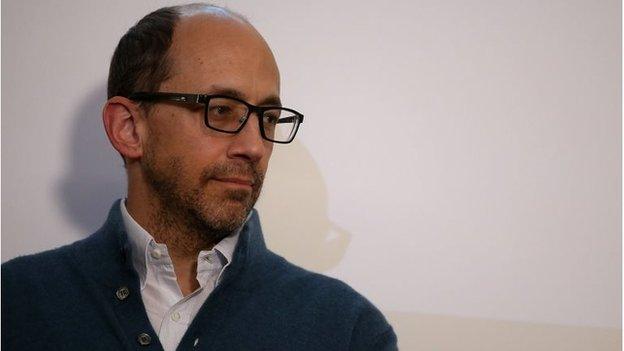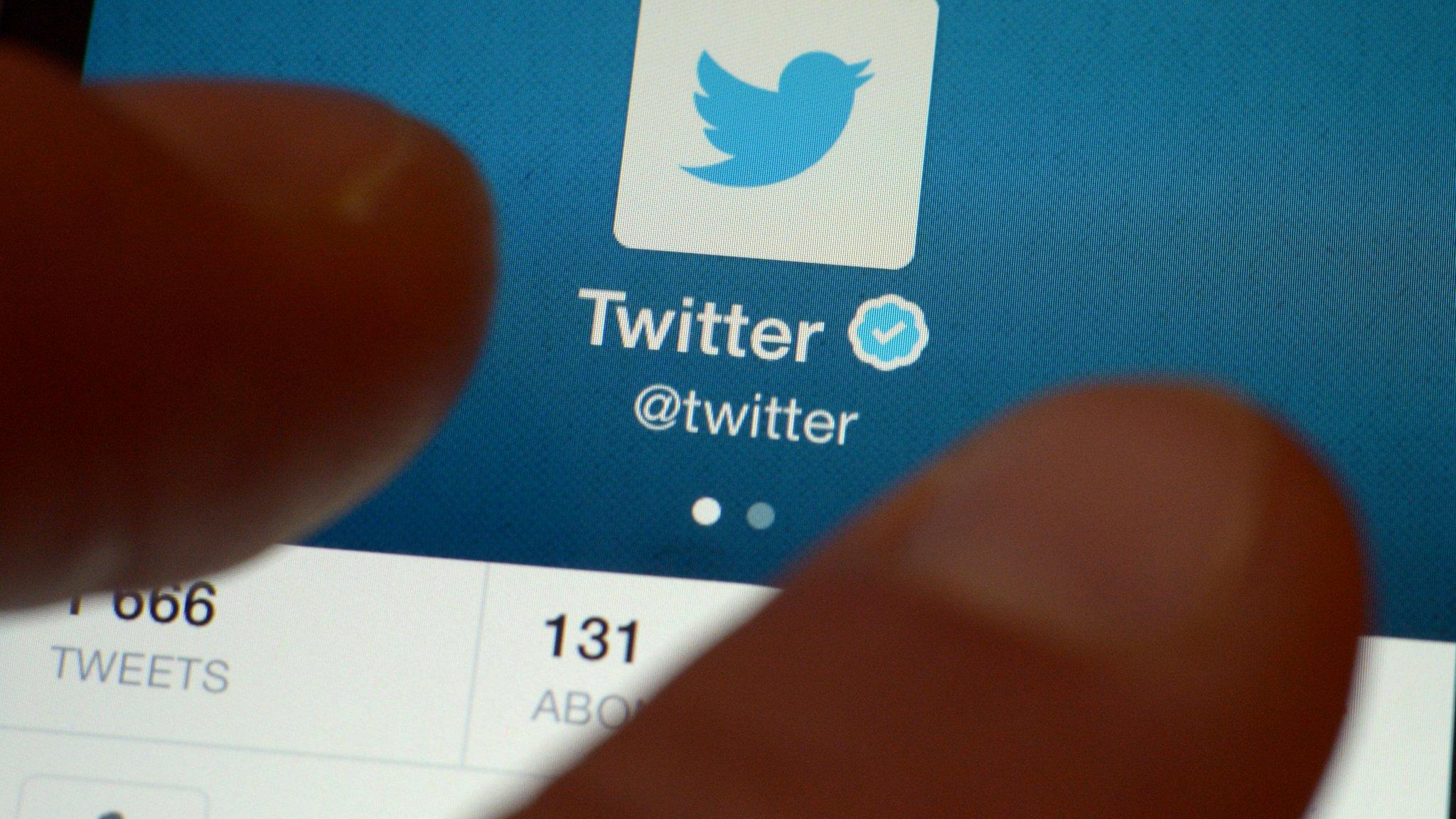Twitter's shares plunge as honesty fails to pay off
- Published

Twitter's shares are still well below the $38.80 price they floated at on the New York Stock Exchange in 2013
Twitter's openness about the difficulty it is having attracting new users has failed to pay off with investors.
In shareholders' first chance to react to Tuesday night's results, the stock plunged more than 14.5% to $31.24, the lowest level in a year for the microblogging site.
The drop came despite Twitter reporting better-than-expected revenues and earnings for the second quarter.
Analysts said the firm's honesty over its problems had made investors wary.
"There's not going to be a a material reversal in trends anytime soon. They were extremely candid about that. That's why the stock is down," MCH analyst James Cakmak told the BBC.
Despite the negative investor reaction, Mr Cakmak said the firm's openness was "evidence of a focus" that was not there previously, which he said provided "comfort" over its future direction.
But in general, Wall Street analysts reacted negatively, with an estimated 18 brokerages cutting their estimates of the shares' valuation to as low as $30.
'Radical shift'
That is significantly below the $38.80 price at which the shares debuted on the US stock market in 2013.
Investors' main concern remains user growth, with active users rising to 316 million in the three months to June, just a slight increase on the 308 million in the first quarter.
While chief financial officer Anthony Noto acknowledged the problem - saying people were still not clear why they should use Twitter, and that it was still too difficult for people to use - analysts are still not convinced the firm will be able to fix its problems.
"In essence, it must go from being a one-product company to an ecosystem and this will require a radical shift in strategy from where the company is today," said Edison Investment Research analyst Richard Windsor.
And RBC analyst Mark Mahaney said improvements in revenues would not be enough to help it grow in the long term.
"That's why monthly average user growth matters. That's why user and usage metrics matter," he said.
The other fear for investors is that the firm has still failed to appoint a permanent new chief executive after previous boss Dick Costolo stepped down.
Co-founder Jack Dorsey started as interim chief executive at the start of this month, but Mr Cakmak warned it made the firm's long-term direction uncertain.
"What's the new chief executive's game plan? We don't know," he said.
- Published28 July 2015

- Published11 June 2015

- Published14 November 2014
